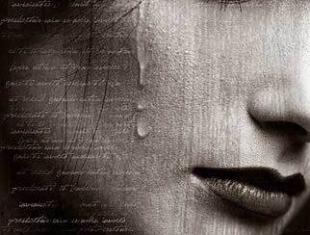For your reference, here are the poems I've selected for you to write about in your 451 essays. Pick the one that speaks to you most clearly, or find one on your own and check it with me. Please note, the poem
"Between What I See and What I Say" is missing the last few lines on your handout. The poem is here in its entirety.
Between What I See and What I Say
Octavio Paz
1
Between what I see and what I say,
Between what I say and what I keep silent,
Between what I keep silent and what I dream,
Between what I dream and what I forget:
poetry.
It slips
between yes and no,
says
what I keep silent,
keeps silent
what I say,
dreams
what I forget.
It is not speech:
it is an act.
It is an act
of speech.
Poetry
speaks and listens:
it is real.
And as soon as I say
it is real,
it vanishes.
Is it then more real?
2
Tangible idea,
intangible
word:
poetry
comes and goes
between what is
and what is not.
It weaves
and unweaves reflections.
Poetry
scatters eyes on a page,
scatters words on our eyes.
Eyes speak,
words look,
looks think.
To hear
thoughts,
see
what we say,
touch
the body of an idea.
Eyes close,
the words open.
My Heart Leaps Up
William Wordsworth
My heart leaps up when I behold
A rainbow in the sky:
So was it when my life began;
So is it now I am a man;
So be it when I shall grow old,
Or let me die!
The Child is father of the Man;
I could wish my days to be
Bound each to each by natural piety.
Do Not Go Gentle into That Good Night
Dylan Thomas
Do not go gentle into that good night,
Old age should burn and rage at close of day;
Rage, rage against the dying of the light.
Though wise men at their end know dark is right,
Because their words had forked no lightning they
Do not go gentle into that good night.
Good men, the last wave by, crying how bright
Their frail deeds might have danced in a green bay,
Rage, rage against the dying of the light.
Wild men who caught and sang the sun in flight,
And learn, too late, they grieved it on its way,
Do not go gentle into that good night.
Grave men, near death, who see with blinding sight
Blind eyes could blaze like meteors and be gay,
Rage, rage against the dying of the light.
And you, my father, there on the sad height,
Curse, bless me now with your fierce tears, I pray.
Do not go gentle into that good night.
Rage, rage against the dying of the light.
I Felt a Funeral, in my Brain
Emily Dickinson
I felt a Funeral, in my Brain,
And Mourners to and fro
Kept treading – treading – till it seemed
That Sense was breaking through –
And when they all were seated,
A Service, like a Drum –
Kept beating – beating – till I thought
My Mind was going numb –
And then I heard them lift a Box
And creak across my Soul
With those same Boots of Lead, again,
Then Space – began to toll,
As all the Heavens were a Bell,
And Being, but an Ear,
And I, and Silence, some strange Race
Wrecked, solitary, here –
And then a Plank in Reason, broke,
And I dropped down, and down –
And hit a World, at every plunge,
And Finished knowing – then –
The Men That Don’t Fit In
Robert Service
There's a race of men that don't fit in,
A race that can't stay still;
So they break the hearts of kith and kin,
And they roam the world at will.
They range the field and they rove the flood,
And they climb the mountain's crest;
Theirs is the curse of the gypsy blood,
And they don't know how to rest.
If they just went straight they might go far;
They are strong and brave and true;
But they're always tired of the things that are,
And they want the strange and new.
They say: "Could I find my proper groove,
What a deep mark I would make!"
So they chop and change, and each fresh move
Is only a fresh mistake.
And each forgets, as he strips and runs
With a brilliant, fitful pace,
It's the steady, quiet, plodding ones
Who win in the lifelong race.
And each forgets that his youth has fled,
Forgets that his prime is past,
Till he stands one day, with a hope that's dead,
In the glare of the truth at last.
He has failed, he has failed; he has missed his chance;
He has just done things by half.
Life's been a jolly good joke on him,
And now is the time to laugh.
Ha, ha! He is one of the Legion Lost;
He was never meant to win;
He's a rolling stone, and it's bred in the bone;
He's a man who won't fit in.










